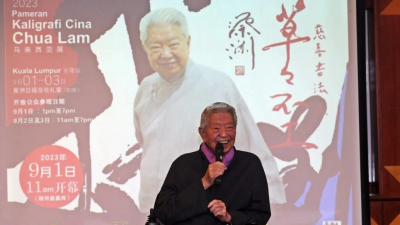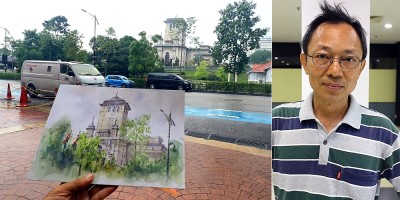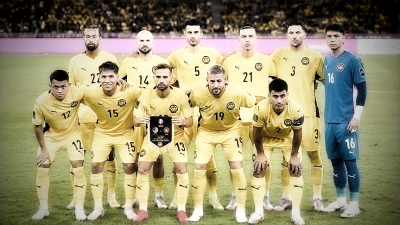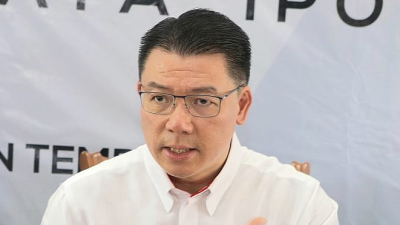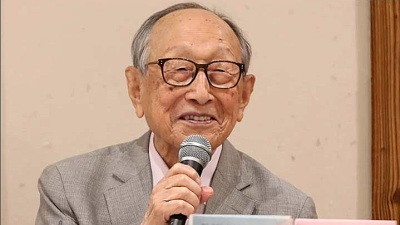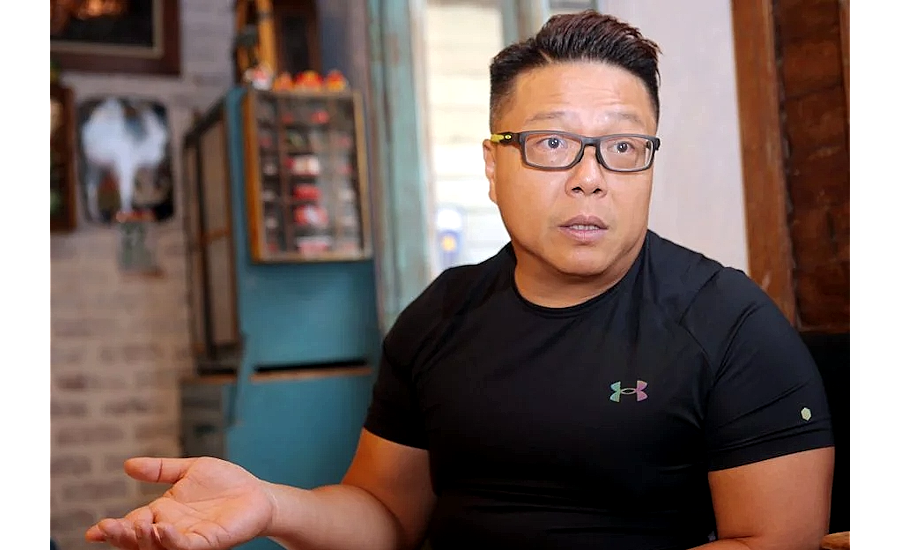
IPOH: Despite spending nearly 28 years behind bars in Malaysia and returning to a world that has become completely unfamiliar, Chu Tak Fai chooses to embrace his new chapter with gratitude and resilience.
Chu, 54, from Hong Kong, was arrested for drug trafficking in Malaysia at the age of 22 on April 30, 1993, and was sentenced to death on October 11 the following year.
After two unsuccessful appeals in 1997 and 2001, he was granted clemency in 2006 by the Sultan of Kedah, and his sentence was reduced to life imprisonment.
He was granted pardon in 2016 and 2020 which finally led to his release at the age of 49.
Returning to Malaysia recently for a third time since regaining his freedom nearly five years ago, Chu said in an interview after a sharing session in Ipoh that prison life forged his resilience.
It was because he had endured truly harsh days that he realized no hardship in life could compare to his sufferings in prison.
“When Covid-19 hit in 2020, many people felt that quarantine was extremely tough.
“At that time, I had just been released and had to undergo several rounds of quarantine when traveling from Malaysia back to Hong Kong.
“To me, quarantine was nothing—at least you still have your phone, TV, food delivery. Yet many people became angry and frustrated, feeling their freedom was taken away from them.
“In fact, that life was already good and worth being grateful for. Nothing compares to facing four walls with no ability to walk out,” he said.
During his time in prison, while applying for appeals and clemency, he experienced countless cycles of hope, waiting, and disappointment—over and over again.
Sharing his story to encourage others not to give up
After regaining his freedom, Chu was determined to reintegrate into society.
He visited rehabilitation centers and NGOs to share his testimony, encouraging others to step forward and reminding them that as long as they don’t give up on themselves, society will not give up on them either.
“When people tell me their current life is very difficult, I usually encourage them to imagine being locked up like I was for nearly 28 years.
“In the end, life is still about facing challenges one after another,” he said.
“Have I ever felt depressed? Of course—I’m only human. But because I had a goal—to let my family see my true change—I pushed myself towards that goal. Over time, I became stronger.”
Losing weight in prison to prove his determination
Chu used to be overweight.
In his darkest and most hopeless days in prison, he coped by overeating, and his weight once reached 101 kg.
After his second appeal failed in 1997, he felt lost and anxious—and suddenly thought he needed a visible way to show his family his determination.
So, he started to lose weight.
With no gym equipment in prison, he improvised.
He used iron bars as makeshift training tool and did push-ups.
“As long as you understand the principle of resistance, doing movements more slowly increases the load, and that helps build strength,” he said.
Developing mental strength & facing judgment
It’s not easy for former inmates to be accepted by society. How did Chu manage?
After being locked up for so long, Chu developed a strong mentality.
When he returned to society, Chu focused only on doing the right thing and paid no mind to others’ judgment.
“Being accepted by society is difficult, but that’s okay. A mistake is a mistake—I admit it and have accepted the legal consequences.
“Now, I just hope to make amends and give back to society. But I cannot force anyone to be forgiving.
“Just like anyone greeting someone on the street—some people respond, others don’t. We must accept that.
“Everyone has emotions—joy, anger, sorrow—and differing mindsets. If you ask me what drives me, I can say for sure that my motivation comes from faith,” he said.
Chu admitted that the 28 years lost could never be recovered—time keeps moving.
All he can do now is live his life positively.
His greatest regret from those years is the passing of his mother, which makes him cherish his loved ones even more—including his two sisters and his wife. He often visits his mother’s grave with his wife to remember her.
Met his wife after release
Adapting to life outside prison was difficult after his release in 2020.
Chu is grateful for his sisters’ help and for the person who introduced him to a job in logistics, which he worked in for nine months.
Later, an interview with Angel Heart magazine led him to join Creation TV, where he now works in the audiovisual ministry’s facilities management department.
Chu also met his wife six months after his release.
He hopes his experiences can inspire more people.
Since his release, he has shared his story at over 20 churches and charitable organizations.
Chu loves Malaysia and considers it his second home.
Malaysians have shown him warmth and care, and many helped him along the way.
After his release, he hoped to return to Malaysia to help others.

ADVERTISEMENT
ADVERTISEMENT









